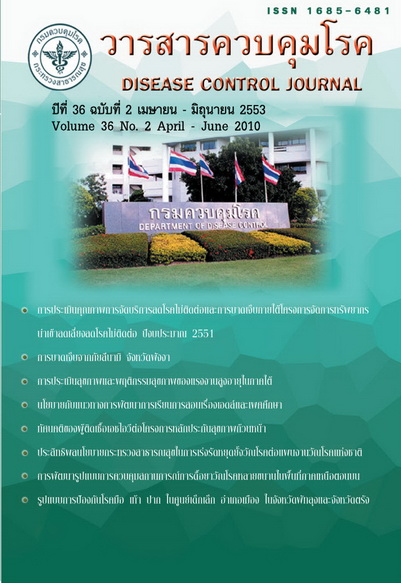The Evaluation of Quality and Services Management of Non-Communicable Diseases in 2008
Keywords:
Non-Communicable Diseases, Quality managementAbstract
This study aimed to evaluate the operational process between input resources (management, human development, knowledge management, and budget) and the outcome quality of service of Non-Communicable Diseases in 2008. The research methodology was designed as summative evaluation and outcome evaluations by cross-sectional interview and information gatherings of NCD health officers in 5 pilot provinces namely Chainat, Chonburi, Ubouratchathani, Chiangmai and Nakhon Si Thammarat. The results showed that the process of performing service management was fully implemented and highly effective. Nonetheless, there were slightly differences during the course of the process implementation due to top-level management. The research also revealed that the satisfaction rate of NCD-staffs were at the highest. The key successes of NCD working were the support from top executives, the awareness and strong-interaction of field health operators. Finally, this study showed no significant association between the input resources the Provincial Public Health offices and Office of Disease Prevention and Control because the interview result showed that the operation process of NCD from the top management of the province to districts were not covered all of areas because there was a lack of policy and implement communications.
Downloads
References
2. Rank Correlation Methods. M.G. Kendall. A Charles Griffin Book. 5th Ed. 1990.
Downloads
Published
How to Cite
Issue
Section
License
Articles published in the Disease Control Journal are considered as academic work, research or analysis of the personal opinion of the authors, not the opinion of the Thailand Department of Disease Control or editorial team. The authors must be responsible for their articles.






